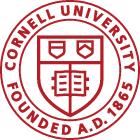The Field of Computer Science is intended for students who are primarily interested in the general aspects of computational processes, both theoretical and practical. Areas of research in the field include algorithms, architecture, artificial intelligence, computer vision, computational biology, concurrency and distributed computing, database systems, machine learning, machine vision, natural language processing, networks, numerical analysis, programming environments, programming languages and methodology, robotics, and theory of computation. The Cornell Ph.D. program in computer science is consistently ranked among the top six departments in the country, with world-class research covering all of computer science. Our computer science program is distinguished by the excellence of the faculty, by a long tradition of pioneering research, and by the breadth of its Ph.D. program. Faculty and Ph.D. students are located both in Ithaca and in New York City at the Cornell Tech campus. The Field of Computer Science also includes faculty members from other departments (Electrical Engineering, Information Science, Applied Math, Mathematics, Operations Research and Industrial Engineering, Mechanical and Aerospace Engineering, Computational Biology, and Architecture) who can supervise a student's Ph.D. thesis research in computer science.
The recent completion of the human genome project underlines the need for new computational and theoretical tools in modern biology. The tools are essential for analyzing, understanding and manipulating the detailed information on life we now have at our disposal. Problems in computational molecular biology vary from understanding sequence data to the analysis of protein shapes, prediction of biological function, study of gene networks, and cell-wide computations. Cornell has a university-wide plan in the science of genomics, the Department of Computer Science is playing a critical role in this initiative. Researchers in the computer science department are engaged in a wide range of computational biology projects, from genetic mapping, to advanced sequence analysis, fold prediction, structure comparison algorithms, protein classification, comparative genomics, and long-time simulation of protein molecules.






